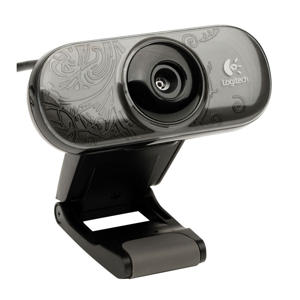Can someone hijack your webcam to spy on you?
From the mailbag: "I've heard a hacker could access my webcam and watch me in front of my computer. Could this really happen?"
The answer is "yes" -- it's technically possible for someone to do this, including this recent case of this happening -- though it's not very likely, statistically speaking.
Still, if you’re concerned about someone accessing your webcam to see (and hear) you through your computer, there are a few things you can do to minimize the odds of it happening.
Here are a few suggestions:
* If you’re using an external webcam – one that plugs into your computer’s USB port – only connect it when you need it. Yes, it can be a pain to remember to plug it in whenever you want to Skype or Facetime with someone, but at least you’ll know 100 percent you aren’t been spied on if there’s no camera connected.
* Some external cameras have a small cover you can close over the webcam lens, so be sure you take advantage of this when you’re not using it. If your webcam doesn’t have this, you can point it to the ceiling until you need it, or place a piece of electrical tape on the front of the webcam – but don’t place it directly over the lens or else it could damage it.
* If your laptop or desktop has a built-in webcam, be sure to have good computer security software installed -- which you should have anyway. A good security suite includes antivirus, anti-spyware, a firewall and other tools to keep the bad guys out. Good web browsers like Internet Explorer should also notify you if your webcam is being activated and you may be prompted to agree. On a related note, many video chatting websites, like Chatroulette, will warn you it’s about to enable your webcam (e.g. “Press Start to enable your webcam and mic”).
* If you need to have your computer repaired, take it to a trustworthy source or else they could secretly install spying software; ensure remote access programs aren’t on your PC you didn’t install yourself, such as LogMeIn, Splashtop, TeamViewer, and so on. If you find something, immediately uninstall it and bring it to a trusted source, such as a tech-savvy relative or a professional.
* Be sure your wireless network has strong security settings and a good password to prevent outsiders from accessing your Wi-Fi network without your consent. Here I wrote a blog post for Digital Crave with some suggestions to creating a solid password for everything.
* Another tip is to go to the webcam’s setting and enable some kind of notification when it’s being used, such as a small light that turns on near the webcam or a sound alert.
The answer is "yes" -- it's technically possible for someone to do this, including this recent case of this happening -- though it's not very likely, statistically speaking.
Still, if you’re concerned about someone accessing your webcam to see (and hear) you through your computer, there are a few things you can do to minimize the odds of it happening.
Here are a few suggestions:
* If you’re using an external webcam – one that plugs into your computer’s USB port – only connect it when you need it. Yes, it can be a pain to remember to plug it in whenever you want to Skype or Facetime with someone, but at least you’ll know 100 percent you aren’t been spied on if there’s no camera connected.
* Some external cameras have a small cover you can close over the webcam lens, so be sure you take advantage of this when you’re not using it. If your webcam doesn’t have this, you can point it to the ceiling until you need it, or place a piece of electrical tape on the front of the webcam – but don’t place it directly over the lens or else it could damage it.
* If your laptop or desktop has a built-in webcam, be sure to have good computer security software installed -- which you should have anyway. A good security suite includes antivirus, anti-spyware, a firewall and other tools to keep the bad guys out. Good web browsers like Internet Explorer should also notify you if your webcam is being activated and you may be prompted to agree. On a related note, many video chatting websites, like Chatroulette, will warn you it’s about to enable your webcam (e.g. “Press Start to enable your webcam and mic”).
* If you need to have your computer repaired, take it to a trustworthy source or else they could secretly install spying software; ensure remote access programs aren’t on your PC you didn’t install yourself, such as LogMeIn, Splashtop, TeamViewer, and so on. If you find something, immediately uninstall it and bring it to a trusted source, such as a tech-savvy relative or a professional.
* Be sure your wireless network has strong security settings and a good password to prevent outsiders from accessing your Wi-Fi network without your consent. Here I wrote a blog post for Digital Crave with some suggestions to creating a solid password for everything.
* Another tip is to go to the webcam’s setting and enable some kind of notification when it’s being used, such as a small light that turns on near the webcam or a sound alert.

No comments:
Post a Comment